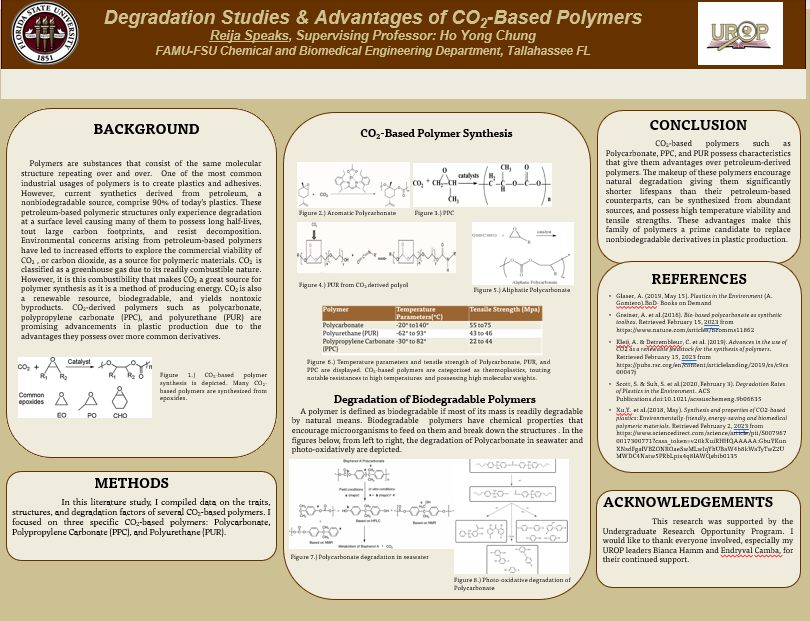Research Symposium
23rd annual Undergraduate Research Symposium, April 6, 2023
Reija Speaks Poster Session 2: 1:30 pm - 2:30 pm/ Poster #411

BIO
My name is Reija Speaks, and I’m a junior at Florida State University. I was born in Fayetteville, NC and moved to Tallahassee, FL to pursue my B.S. in Biological Science.
Degradation Studies & Advantages of CO2 -Based Polymers
Authors: Reija Speaks, Ho Yong ChungStudent Major: Biological Science
Mentor: Ho Yong Chung
Mentor's Department: FAMU-FSU Chemical and Biomedical Engineering Department Mentor's College: FAMU-FSU College of Engineering Co-Presenters:
Abstract
Polymers are substances that consist of the same molecular structure repeating over and over. One of the most common industrial usages of polymers is to create plastics and adhesives. However, current synthetics derived from petroleum, a nonbiodegradable source, comprise 90% of today’s plastics. These petroleum-based polymeric structures only experience degradation at a surface level causing many of them to possess long half-lives, tout large carbon footprints, and resist decomposition. Environmental concerns arising from petroleum-based polymers have led to increased efforts to explore the commercial viability of CO2, or carbon dioxide, as a source for polymeric materials. CO2 is classified as a greenhouse gas due to its readily combustible nature. However, it is this combustibility that makes CO2 a great source for polymer synthesis as it is a method of producing energy. CO2
is also a renewable resource, biodegradable, and yields nontoxic byproducts. CO2-derived polymers such as polycarbonate, polypropylene carbonate (PPC), and polyurethane (PUR) are promising advancements in plastic production due to the advantages they possess over more common derivatives
Keywords: polymers, biodegradable, co2 based, synthesis, degradation


